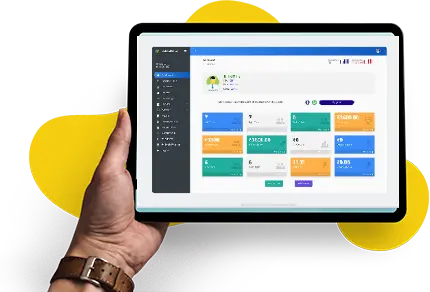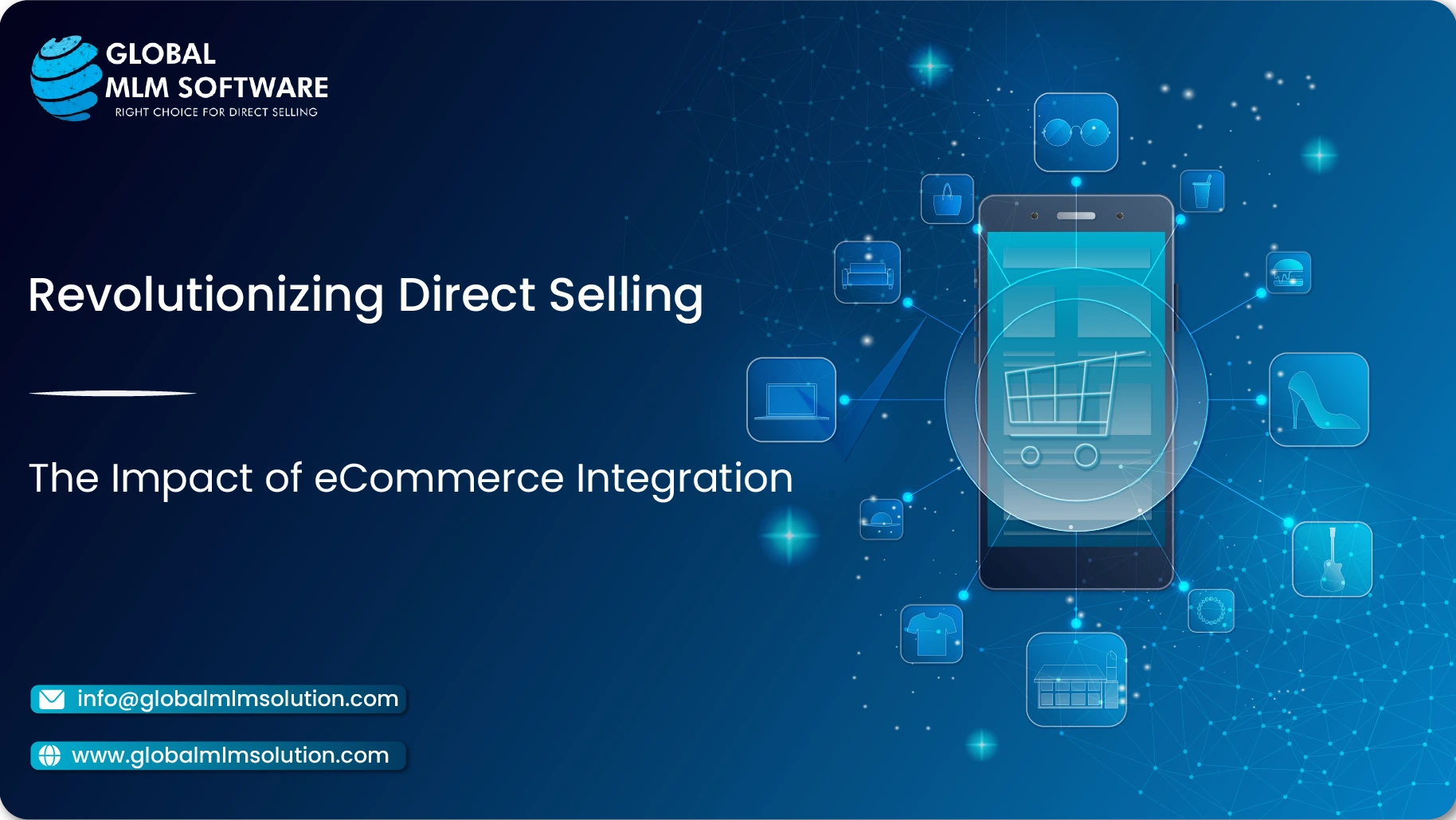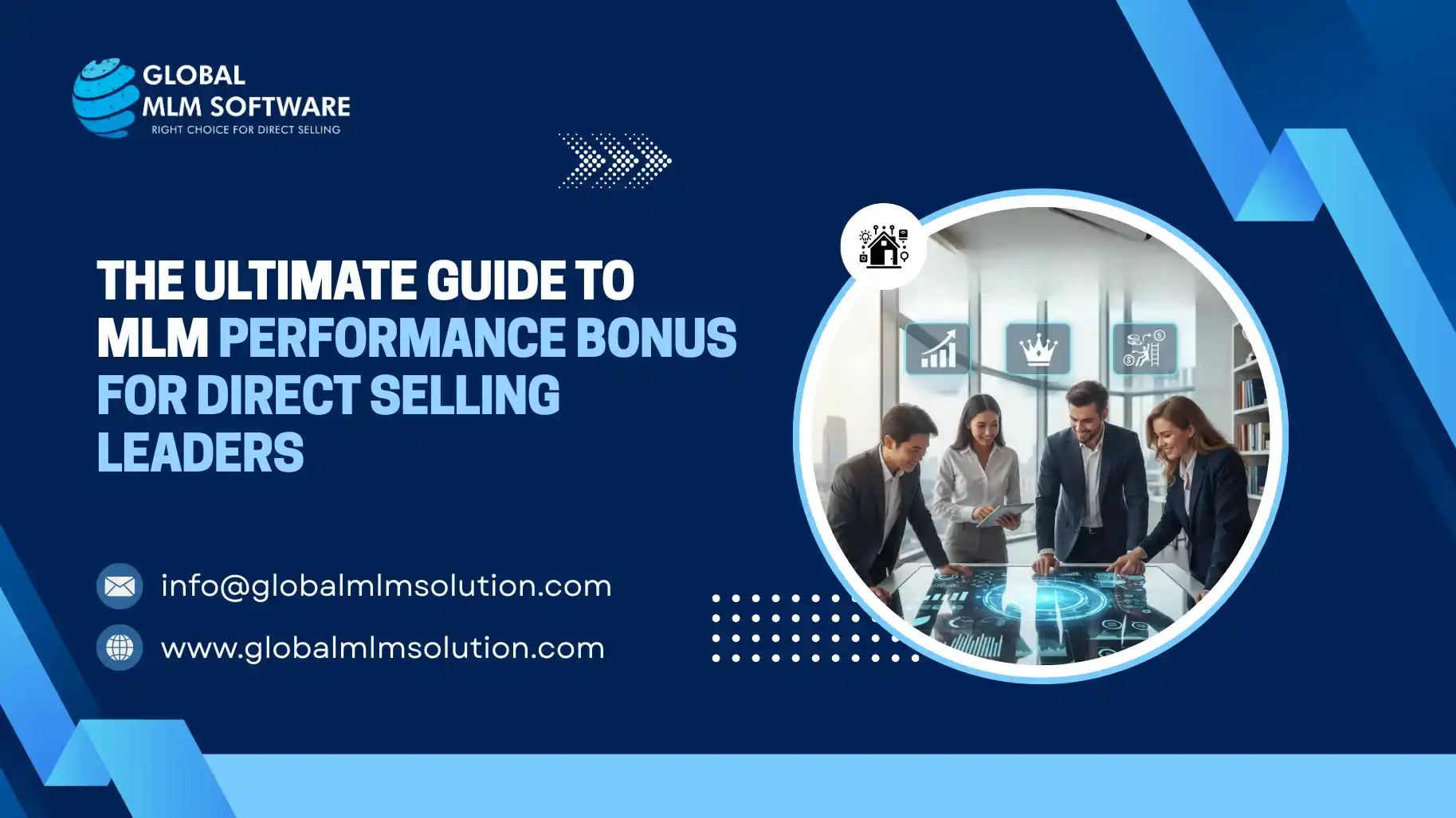Welcome to the dynamic intersection of technology and entrepreneurship!
Amidst the vast online shopping landscape, Multi-Level Marketing (MLM) companies stand out as innovators, leveraging e-commerce integration to redefine consumer experiences. Fueled by advanced MLM systems, these companies streamline operations, foster growth, and transform the digital shopping sphere.
Explore with us as we delve into their digital evolution, uncovering how these pioneers navigate e-commerce's new frontier with remarkable agility and creativity.
This Article Contains:
Understanding the Evolution of MLM in the Digital Age
In today's rapidly evolving digital landscape, the traditional paradigms of multi-tiered marketing are undergoing a profound transformation. As technology continues to reshape how businesses engage with consumers, MLM companies are at the forefront of this digital evolution, leveraging innovative strategies to stay relevant and competitive.
In this section, we'll explore the dynamic interplay between MLM and the digital age, uncovering the strategies, challenges, and opportunities that define this new era of direct selling.
Exploring the Traditional MLM Model and Its Limitations
Historically, MLM (Multi-Level Marketing) has relied heavily on interpersonal relationships and face-to-face interactions to drive sales and recruit new members. While this approach has yielded success for many, it also presents inherent limitations.
⮞ Limitations of Traditional MLM Methods
The limitations of Traditional MLM methods are:-
Geographical constraints restrict the expansion of the network beyond local or regional boundaries.
The time-intensive nature of face-to-face interactions limits the scalability of the business.
Difficulty in reaching a global audience due to reliance on traditional marketing techniques.
Lack of flexibility in adapting to changing consumer preferences and market trends.
High overhead costs associated with organizing physical meetings and events.
Limited accessibility for individuals with mobility or transportation challenges.
Dependency on personal networks for sales and recruitment, leading to potential saturation within a local market.
Discussing the Impact of Digital Technologies on MLM Businesses
Enter the digital age, where technological advancements have revolutionized how businesses operate. Digital technologies, ranging from social media platforms to sophisticated e-commerce solutions, have reshaped the multi-tiered marketing landscape, offering unprecedented opportunities for growth and innovation.
⮞ Impact of Digital Technologies on MLM Businesses
The impact of digital technologies on MLM businesses are:-
Enhanced reach and accessibility through online communication channels.
Ability to connect with global audiences, breaking traditional geographical constraints.
Facilitation of remote work and virtual interactions, promoting flexibility and scalability.
Integration of data analytics for targeted marketing and performance tracking.
Automation of processes, reducing manual workload, and optimizing efficiency.
Expansion of revenue streams through online sales channels and diversified product offerings.
Highlighting the Need for Integrated e-Commerce Solutions in MLM
Central to this transformation is integrating e-commerce solutions within the MLM framework. By leveraging digital platforms and automation tools, MLM businesses can streamline operations, enhance customer engagement, and facilitate seamless transactions.
Benefits of Integrated e-Commerce Solutions in MLM
In the dynamic landscape of multi-level marketing (MLM), integrating e-commerce solutions offers many advantages, revolutionizing how businesses operate and interact with their audience. Let's delve into the key benefits:
-
Streamlined Operations and Order Management for Distributors and Administrators
Integrated e-commerce solutions streamline the order management process for distributors and administrators. Distributors can easily place orders, track shipments, and manage customer inquiries through intuitive online interfaces.
On the other hand, administrators benefit from automated order processing, reducing manual workload and minimizing errors. This streamlined approach enhances efficiency, saves time, and ensures smooth operations across the board.
-
Improved Customer Experience through Intuitive Online Shopping Interfaces
Integrated e-commerce platforms offer intuitive and user-friendly interfaces that enhance the overall customer experience. With seamless navigation, personalized product recommendations, and secure payment gateways, customers can enjoy a hassle-free shopping experience from start to finish.
Easy access to product information, reviews, and FAQs further empowers customers to make informed purchasing decisions, resulting in higher satisfaction and increased loyalty.
-
Enhanced Product Visibility and Promotion through Digital Marketing Channels
E-commerce solutions provide MLM businesses with powerful tools to enhance product visibility and promote offerings through digital marketing channels. From targeted email campaigns and social media advertising to search engine optimization (SEO) strategies, businesses can leverage various digital marketing techniques to reach their target audience effectively.
By increasing brand visibility and engagement online, businesses can attract new customers, drive sales, and expand their market reach.
-
Centralized Inventory Management and Real-Time Sales Tracking Capabilities
Integrated e-commerce platforms offer centralized inventory management capabilities, allowing businesses to track stock levels, manage product listings, and monitor supply chain operations in real-time. Administrators can access comprehensive dashboards that provide insights into inventory turnover rates, popular products, and stock availability.
This real-time visibility enables businesses to optimize inventory levels, minimize stockouts, and ensure timely order fulfillment, ultimately improving customer satisfaction and retention.
-
Access to Actionable Insights and Analytics for Informed Decision-Making
E-commerce solutions provide businesses with valuable insights and analytics, enabling them to make well-informed decisions. By analyzing customer behavior, purchase patterns, and sales trends, businesses can identify growth opportunities, optimize marketing strategies, and tailor product offerings to meet consumer preferences.
Additionally, advanced reporting features enable administrators to track key performance indicators (KPIs), measure ROI, and identify areas for improvement, driving continuous optimization and business growth.
-
Scalability and Adaptability to Meet Evolving Market Demands and Consumer Preferences
One of the most significant advantages of integrated e-commerce solutions is their scalability and adaptability to meet evolving market demands and consumer preferences. Whether scaling operations to accommodate growth or pivoting to align with shifting market trends, e-commerce platforms offer businesses the flexibility and agility to stay competitive.
Modular architecture and customizable features allow businesses to tailor their e-commerce solutions to specific requirements, ensuring they remain agile and responsive in today's dynamic marketplace.
Also Read: The Role of eCommerce in Direct Selling: Trends and Innovations
Key Features of Integrated e-Commerce Solutions for MLM
The key features of integrated e-commerce solutions for MLM are:-
-
Customizable Storefronts
Integrated e-commerce solutions offer customizable storefronts, allowing multi-tiered marketing businesses to showcase their products and brand identity effectively. From personalized themes and branding elements to customizable product listings and categories, businesses can create a unique online shopping experience that resonates with their target audience.
-
Multi-level Commission Tracking
These solutions provide robust commission tracking functionality that supports multi-level compensation plans inherent to MLM business models. Distributors can view their earnings in real time, while administrators can easily manage commission structures, track payouts, and generate detailed reports for analysis.
-
Replicated Websites for Distributors
Replicated websites empower distributors with personalized online storefronts that mirror the main e-commerce platform. These replicated sites allow distributors to promote products, track sales, and manage customer relationships independently while maintaining brand consistency and compliance with corporate guidelines.
-
Integrated Marketing Tools
Integrated e-commerce solutions come equipped with a suite of marketing tools designed to drive traffic, engage customers, and increase sales. From email marketing automation and social media integration to search engine optimization (SEO) tools and content management systems (CMS), businesses can leverage a range of marketing functionalities to reach their target audience effectively.
-
Secure Payment Gateways
These solutions integrate secure payment gateways that facilitate seamless and secure online transactions. By offering multiple payment options, including credit/debit cards, digital wallets, and bank transfers, businesses can cater to diverse customer preferences and enhance trust and confidence in their online storefront.
-
Inventory Management and Fulfillment Integration
Integrated e-commerce platforms feature robust inventory management and fulfillment integration capabilities that streamline supply chain operations. Businesses can track inventory levels in real time, automate reorder processes, and integrate with third-party logistics providers for efficient order fulfillment and delivery.
-
Comprehensive Reporting and Analytics
These solutions provide comprehensive reporting and analytics tools that enable businesses to track performance, measure ROI, and gain actionable insights into their e-commerce operations. Administrators can generate custom reports, analyze sales trends, and identify growth opportunities to drive strategic decision-making and business growth.
-
Mobile-Friendly Design
With the increasing prevalence of mobile devices, integrated e-commerce solutions prioritize mobile-friendly design to ensure a seamless shopping experience across all devices. Responsive design, mobile-optimized checkout processes, and native mobile apps enhance accessibility and convenience for customers, driving higher conversion rates and customer satisfaction.
Case Studies: MLM Companies Embracing E-commerce
In an ever-evolving digital landscape, the integration of e-commerce has become paramount for multi-tiered marketing companies seeking to remain competitive and capitalize on emerging opportunities. Below are compelling examples of MLM giants that have successfully adapted to e-commerce, redefining the traditional MLM model and driving substantial growth:
-
Avon
Avon's rich history spanning over a century is a testament to adaptability's power in the MLM industry. Embracing e-commerce has been pivotal to Avon's continued success, as evidenced by a remarkable 34% growth in e-commerce sales reported by Forbes in 2020. The quarter revenue of Avon products is $590.5 million (Q1'2023).
By leveraging online platforms, Avon has expanded its reach, engaged new audiences, and enhanced the overall customer experience, positioning itself as a leader in the digital MLM space.
-
Mary Kay
Another MLM behemoth, Mary Kay, has strongly committed to embracing e-commerce to drive business growth. Direct Selling News reported that Mary Kay experienced a significant surge in e-commerce sales, which are projected to reach 44% in 2020. The revenue of Mary Kay for 2023 is $2.5 billion.
By seamlessly integrating e-commerce into its business model, Mary Kay has empowered its distributors and customers, offering convenient online shopping experiences and fostering deeper connections with its audience.
-
Young Living
Specializing in oils and wellness products, Young Living has leveraged e-commerce to fuel its expansion and solidify its position in the MLM market. Business for Home highlighted Young Living's impressive 21% increase in e-commerce sales in 2020, underscoring the transformative impact of digital initiatives on MLM businesses.
By embracing e-commerce, Young Living has increased its market share and cultivated a loyal customer base drawn to its high-quality products and seamless online shopping experience.
Best Practices for Implementing Integrated e-Commerce Solutions in MLM
The best practices for implementing integrated e-commerce solutions in MLM are:-
1. Engaging Stakeholders for Comprehensive Feedback and Inclusion
Engaging stakeholders at every level of the organization is essential to ensure the successful implementation of integrated e-commerce solutions in MLM. Multi tiered marketing businesses can leverage the collective expertise and insights of distributors, customers, and internal teams by soliciting comprehensive feedback and fostering a culture of inclusion.
2. Evaluating Customer Needs and Preferences
Understanding the needs and preferences of your customers is paramount when implementing integrated e-commerce solutions. Take the time to assess the following:
What information does a customer need to confidently purchase?
What are the shopping and checkout requirements from the customer's perspective?
What login or self-service features are needed?
What additional features contribute to enhancing the customer's shopping experience in terms of ease, efficiency, and enjoyment?
By evaluating these aspects, MLM businesses can effectively tailor their e-commerce platforms to meet customer expectations. This customer-centric approach enhances the shopping experience and fosters long-term customer loyalty and satisfaction.
3. Crafting a Strategic Go-Live Strategy
Implementing integrated e-commerce solutions in MLM requires a well-thought-out go-live strategy to ensure a smooth transition and maximize adoption. Consider the following:
A. How do you plan to spread awareness about your new online purchasing option?
Utilize a multi-channel approach to communicate the launch of your e-commerce platform, including email newsletters, social media announcements, and targeted advertising campaigns. Engage with distributors and customers directly to generate excitement and anticipation.
B. How will you incentivize customers to purchase online?
Offer exclusive discounts, promotions, or loyalty rewards for online purchases to incentivize customers to utilize the e-commerce platform. Highlight the convenience, accessibility, and additional benefits of online shopping to encourage adoption among your customer base.
C. How will you sustain the eCommerce strategy and keep customers returning?
Implement a comprehensive retention strategy to deliver exceptional customer experiences, personalized recommendations, and ongoing communication. Continuously analyze customer feedback and behavior to optimize the e-commerce platform and address evolving needs and preferences.
4. Selecting Reliable eCommerce Providers
When selecting an e-commerce provider for your integrated e-commerce solution, it's essential to consider the following factors:
-
Integrate with your ERP
Ensure seamless integration with your existing ERP system to streamline operations and data management.
-
Easy to manage
Select a user-friendly platform that is easy to manage and update, allowing for efficient administration and customization.
-
Delivers robust capacity and capabilities
Choose a provider with scalable solutions with robust features and capabilities to support your MLM business's growth and evolving needs.
-
Complements your sector
Opt for an e-commerce provider that understands the unique requirements and dynamics of the MLM industry, offering tailored solutions to meet your specific needs.
-
Includes reliable and long-term customer support
Partner with a provider that offers reliable customer support and ongoing assistance to address any issues or challenges that may arise, ensuring a smooth and uninterrupted operation of your e-commerce platform.
5. Emphasizing Priority on ERP Integration
Integration with your existing Enterprise Resource Planning (ERP) system is paramount when implementing integrated e-commerce solutions in MLM. Here's why it's crucial:
-
Streamlined Operations
Integrating your e-commerce platform with your ERP system ensures seamless data flow and synchronization between various business functions, including inventory management, order processing, and customer relationship management. This streamlines operations, eliminates manual data entry errors, and enhances efficiency across the board.
-
Real-time Insights
By integrating with your ERP system, your e-commerce platform can leverage real-time data to provide actionable insights into sales trends, inventory levels, and customer behavior. This enables informed decision-making, allowing you to optimize marketing strategies, adjust inventory levels, and personalize customer experiences based on up-to-date information.
-
Consistent Customer Experience
ERP integration ensures consistency in customer experience across all touchpoints, whether customers are interacting with your e-commerce platform, engaging with your customer service team, or visiting physical retail locations. This unified approach fosters trust, loyalty, and satisfaction among your customer base.
6. Implementing Gradual Rollout Strategies
When rolling out integrated e-commerce solutions in multi-tiered marketing, taking a gradual approach can help ensure a smooth transition and maximize adoption. Here's how to implement gradual rollout strategies effectively:
Pilot Testing
Conduct pilot tests with a small group of distributors or customers to gather feedback, identify potential issues, and fine-tune the e-commerce platform before launching it on a larger scale.
-
Phased Launch
Gradually introduce the e-commerce platform to different segments of your distributor network or customer base over time. This allows you to manage resources effectively, address any challenges incrementally, and monitor performance closely at each rollout stage.
-
Training and Support
Provide comprehensive training and support to distributors, customers, and internal staff to ensure they are comfortable using the new e-commerce platform. Offer tutorials, FAQs, and dedicated support channels to address any questions or concerns that may arise during the rollout process.
-
Iterative Improvements
Continuously gather feedback from users and stakeholders throughout the rollout process and use this input to make iterative improvements to the e-commerce platform. This agile approach enables you to adapt to evolving needs and preferences, ensuring the success and long-term sustainability of your integrated e-commerce solution.
Conclusion
In conclusion, the evolution of MLM in the digital age has brought unprecedented opportunities for growth and innovation. As MLM businesses navigate this dynamic landscape, integrating e-commerce solutions emerges as a transformative strategy to drive success and stay ahead of the curve.
By understanding the limitations of traditional MLM methods and embracing digital technologies, businesses can expand their reach, enhance customer engagement, and streamline operations with unparalleled efficiency. Integrated e-commerce solutions empower MLM businesses to showcase their products, optimize sales processes, and unlock new revenue streams in an increasingly competitive market.
As you embark on your journey to transform your MLM business with integrated e-commerce solutions, remember the importance of engaging stakeholders, evaluating customer needs, and selecting reliable providers. Craft a strategic go-live strategy, emphasize ERP integration, and implement gradual rollout strategies to ensure a smooth transition and maximize adoption.
In this endeavor, the software you choose plays a crucial role in shaping your company's future. With Global MLM Software, you can trust a comprehensive, integrated solution that caters to all your business needs. Global MLM Software offers the tools and support you need to thrive in the digital age, from customizable storefronts to multi-level commission tracking and robust inventory management. Make the right choice for your business and unlock limitless potential with Global MLM Software.
FAQs
1. How does integrated e-commerce benefit MLM businesses compared to traditional sales methods?
Integrated e-commerce offers numerous advantages for MLM businesses compared to traditional sales methods. It enables global reach, streamlines operations, reduces costs, and provides valuable data analytics for informed decision-making.
2. Are there any risks associated with integrating e-commerce solutions into MLM businesses?
Integrating e-commerce solutions into MLM businesses offers benefits but comes with risks. These include initial costs, training needs, and security concerns. However, with proper planning and security measures, these risks can be managed effectively.
3. How do MLM businesses ensure a seamless transition to integrated e-commerce platforms for their distributors and customers?
To ensure a smooth transition, MLM businesses prioritize communication, training, and support for distributors and customers. Clear guidelines, tutorials, and phased rollout strategies facilitate user navigation and feedback-driven improvements.
4. What key metrics should MLM businesses track to measure the success of their integrated e-commerce solutions?
MLM businesses should track key metrics like sales performance, customer engagement, inventory management, marketing effectiveness, and customer satisfaction to gauge the success of their integrated e-commerce solutions.
5. How can MLM businesses stay competitive in the digital marketplace with integrated e-commerce solutions?
MLM businesses can stay competitive in the digital marketplace by prioritizing innovation, customer-centricity, and adaptability. Integrated e-commerce solutions help enhance online presence, personalize experiences, and offer seamless shopping across channels. By embracing trends and optimizing strategies, they position for long-term success.






